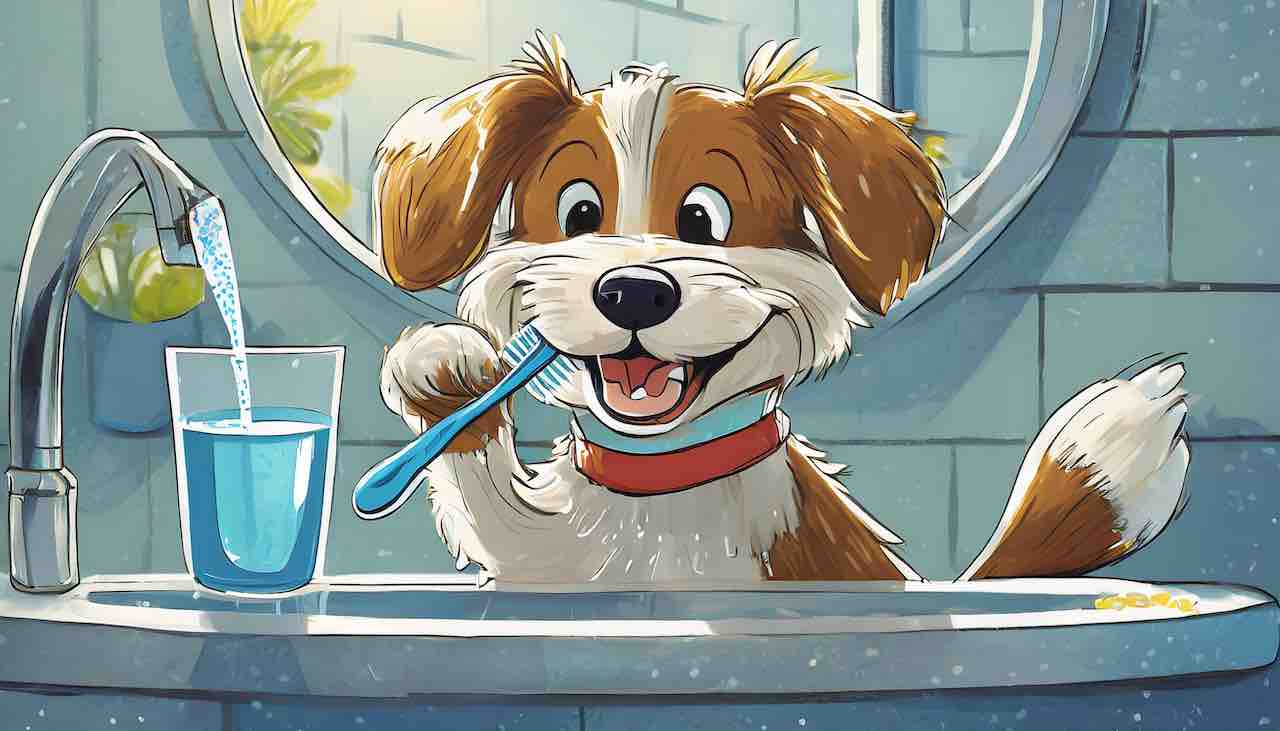Exploring the Importance of Dental Health for Pets
Have you ever wondered about the significance of dental health for your beloved furry friends?
Just like humans, pets require proper dental care to ensure overall well-being and a happy, healthy life. Dental issues can impact your pet’s quality of life, from their ability to eat comfortably to potential long-term health concerns. Let’s delve into the importance of dental health for pets and discover essential tips for maintaining those pearly whites.
Understanding the Significance of Pet Dental Health:
Dental health is a crucial aspect of your pet’s overall well-being. Poor oral hygiene can lead to various health issues, including gum disease, tooth decay, and even systemic problems that affect organs such as the heart and kidneys. Regular dental care contributes to a longer and healthier life for your furry friend.
Common Dental Problems in Pets:
Pets, especially dogs and cats, are prone to common dental issues like plaque and tartar buildup, gingivitis, and periodontal disease. These problems can cause pain, discomfort, and affect your pet’s ability to eat and enjoy daily activities.
The Role of Dental Hygiene in Preventing Disease:
Maintaining good dental hygiene is key to preventing dental diseases in pets. Brushing your pet’s teeth regularly, providing dental treats or toys, and incorporating dental-specific diets are effective ways to promote oral health and reduce the risk of dental problems.
Importance of Professional Veterinary Dental Check-ups:
Regular veterinary check-ups are crucial for assessing your pet’s dental health. Veterinarians can identify early signs of dental issues, perform professional cleanings, and provide guidance on at-home dental care practices. Early intervention is key to preventing the progression of dental problems.
At-Home Dental Care Practices:
Incorporating at-home dental care practices into your routine helps maintain your pet’s oral health. Brushing your pet’s teeth with pet-friendly toothpaste, offering dental chews or toys, and providing dental diets can significantly contribute to reducing plaque and tartar buildup.
Choosing Dental-Friendly Treats and Toys:
Opt for treats and toys specifically designed to promote dental health. Dental treats with unique shapes and textures can help reduce plaque, and chew toys can contribute to healthy teeth and gums. Ensure that any treats or toys are appropriate for your pet’s size and chewing habits.
The Impact of Diet on Dental Health:
Diet plays a role in dental health for pets. Some specialized pet foods are formulated to promote dental hygiene by reducing plaque and tartar. Consult with your veterinarian to determine the most suitable diet for your pet’s dental needs.
Monitoring Changes in Behavior:
Be vigilant about changes in your pet’s behavior that may indicate dental issues. Signs such as bad breath, reluctance to eat, pawing at the mouth, or excessive drooling could be indicators of dental problems. Promptly address any changes by consulting with your veterinarian.
Avoiding Human Dental Products for Pets:
While regular brushing is essential, avoid using human toothpaste for your pets, as it can be harmful if ingested. Use toothpaste specifically formulated for pets, and choose a soft-bristled toothbrush or finger brush designed for comfortable use in your pet’s mouth.
Building a Routine for Dental Care:
Consistency is key when it comes to dental care for pets. Establishing a routine for brushing, providing dental treats, and incorporating dental toys into playtime creates habits that contribute to long-term oral health.
The Link Between Dental Health and Systemic Diseases:
Poor oral health in pets is not isolated to the mouth. Studies suggest a connection between dental issues and systemic diseases, including diabetes and heart disease. Taking care of your pet’s teeth contributes to their overall systemic health.
Dental Health in Senior Pets:
As pets age, dental care becomes even more critical. Senior pets may be prone to dental problems, including tooth loss and gum disease. Regular dental check-ups become increasingly important to address age-related dental issues.
Professional Dental Cleanings:
Professional dental cleanings performed by veterinarians are essential for addressing stubborn tartar and plaque. These cleanings may involve scaling, polishing, and even dental X-rays to identify hidden issues below the gumline.
Preventing Tooth Decay in Pets:
Tooth decay is not exclusive to humans; pets can also experience decay. Regular dental care, proper nutrition, and avoiding sugary treats contribute to preventing tooth decay and maintaining your pet’s oral health.
Oral Exams During Routine Veterinary Visits:
Regular veterinary visits should include thorough oral exams. Veterinarians can detect early signs of dental problems, offer guidance on preventive care, and recommend further dental interventions if necessary.
Breeds Predisposed to Dental Issues:
Some dog and cat breeds are genetically predisposed to dental problems. Breeds with short noses (brachycephalic breeds), small breeds, and those with crowded teeth may require extra attention to their dental health.
Anesthesia Considerations for Dental Procedures:
Dental procedures often require anesthesia to ensure the safety and cooperation of the pet. Veterinarians carefully assess the health of the pet before administering anesthesia, and monitoring during the procedure ensures a safe experience.
Education on Dental Care for Pet Owners:
Pet owners play a crucial role in maintaining their pet’s dental health. Veterinary clinics often provide educational resources, workshops, and demonstrations to empower pet owners with the knowledge and skills needed for effective dental care.
Long-Term Cost Savings with Preventive Care:
Investing in preventive dental care can result in long-term cost savings. Addressing dental issues early on prevents the need for more extensive and costly interventions later. Regular care reduces the risk of dental emergencies and associated expenses.
Positive Effects on Quality of Life:
Maintaining good oral health positively impacts your pet’s quality of life. Healthy teeth and gums contribute to pain-free eating, improved breath, and overall comfort, allowing your pet to enjoy a full and happy life.
Dental health is not just about a gleaming smile; it’s a cornerstone of your pet’s overall well-being. By understanding the importance of dental care, implementing regular at-home practices, and seeking professional veterinary attention when needed, you can ensure that your furry friend enjoys a healthy and happy life with a bright, healthy smile and a wagging tail.







